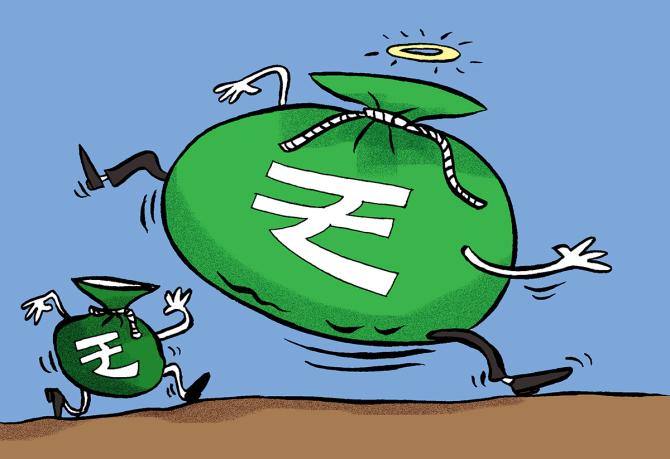The contribution from asset management companies (AMCs) has surpassed the Rs 3,000 crore target for the creation of a Rs 33,000 crore backstop facility for debt mutual funds (MFs).

The initial corpus for the Corporate Debt Market Development Fund (CDMDF) is nearly Rs 3,100 crore, according to multiple government officials and AMC executives.
“The fund is operational now.
"The required corpus has been raised by AMCs and the remaining part (Rs 30,000 crore) is in the form of a guarantee from the government which will be activated only in case of a credit event,” explained D P Singh, joint CEO and deputy MD, SBI MF.
The fund, set up as an alternate investment fund (AIF), was launched by Finance Minister Nirmala Sitharaman in July this year, while its regulatory architecture was cleared by Sebi in March.
Over the past three months, the fund’s “waterfall mechanism” has been explained to industry players, the policy document has been finalised, and units have been allocated.
“The fund has a reset period of six months.
"This means the corpus will continue to grow every six months as any income generated from this scheme must be retained in the scheme.
"It cannot be distributed.
"Furthermore, every six months, the contribution of AMCs must come only on the incremental AUM, but there is no refund option for MFs if they see a dip in the debt AUM,” said another executive.
The backstop facility aims to provide liquidity to debt schemes in case of a distress situation.
The Sebi board has the authority to adjudicate if any event qualifies as liquidity stress.
“The indicators for triggering the fund are a combination of many domestic economic indicators and some international indicators.
"The metric has been placed by Sebi, and the board will make the final decision on whether the market needs liquidity," said an official from the Department of Economic Affairs.
In the event of distress, this initial corpus will be absorbed first, and the government guarantee will follow.
The CDMDF’s initial corpus will remain invested in liquid and low-risk debt instruments like low-duration government securities, Treasury bills, tri-party repo on G-secs, and guaranteed corporate bond repo with maturity of up to seven days.
If Sebi declares stress in the debt market, the existing portfolio of the CDMDF would be liquidated.
However, only investment-grade credit instruments, including listed money market instruments, would be purchased by the fund from the specified open-ended debt schemes where there is liquidity stress but the credit quality is good.
“The banking system has the RBI (Reserve Bank of India) as the lender of the last resort to provide short-term liquidity.
"This gives confidence to bank depositors and allows smooth functioning of the banking system.
"There is an absence of a buyer of the last resort in the bond market.
"The introduction of the CDMDF will fill that gap and provide for enhanced investor confidence and deepening of the bond market,” said Nilesh Shah, MD, Kotak Mahindra MF, which is among the top five AMCs in terms of debt asset under management (AUM).
AMCs’ contribution to the corpus is proportional to their total debt assets — the larger the size of debt schemes, the greater the contribution.
AMCs were supposed to contribute two basis points of their debt AUM.
However, certain schemes, such as overnight funds, gilt funds index funds, ETFs, and conservative hybrid funds, were excluded from contribution.
The need for such a facility was felt after the debt fund crisis in Franklin Templeton India after it announced the winding up of its six debt schemes in 2020.











